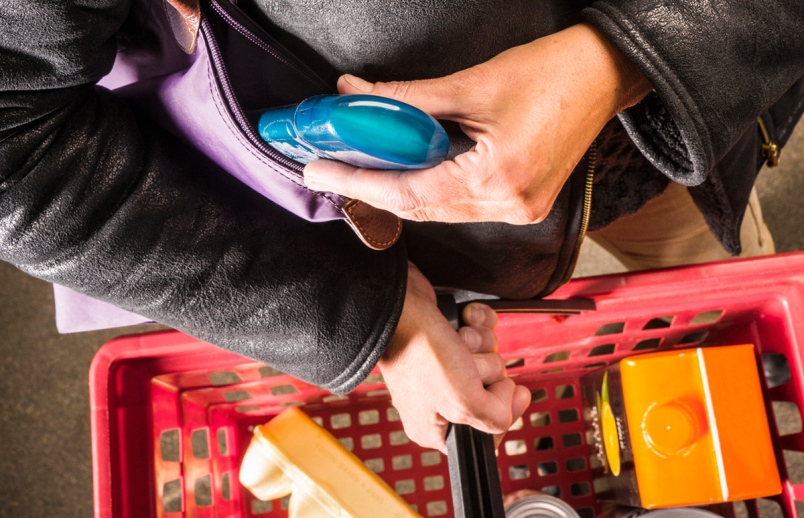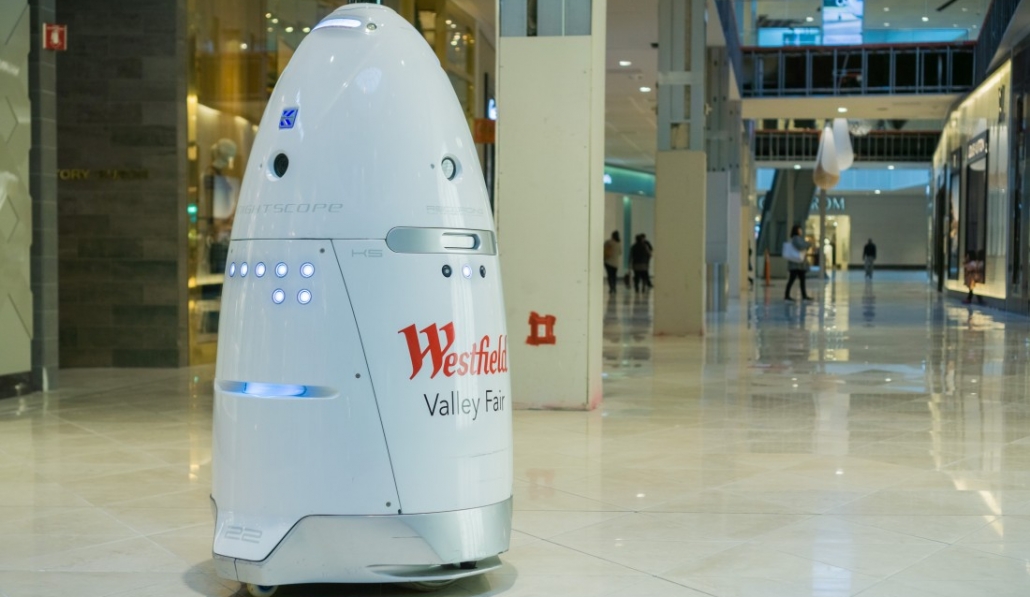‘Tis the season for spending time with family and friends and the inevitable yuletide spree of shopping and gift-giving. Suburban malls and high-street stores are jammed in the lead-up to the holidays, as Torontonians make a final festive retail push before taking a breather and preparing for Boxing Week bargain bonanzas.
Unfortunately, this is also the time of year when busy retailers must contend with wide-scale theft. Statistics show that Canadian businesses lose more than $3 billion annually to crime, including both internal (e.g., employee) and external shoplifting that eats into profits and compromises retailers’ competitiveness. Rather than tackling the problem head-on, a new Toronto Police Service pilot project is moving in a very different direction.
Toronto Police Service introduces Stop Theft
First-time shoplifters caught pilfering items within the boundaries of the city’s 51 and 52 divisions will no longer be prosecuted under the six-month Stop Theft program, an initiative that will permit private security and theft-prevention guards to effectively catch and release shoplifters after documenting their personal details, then providing them to officers at one of the two divisions participating in the program. The Toronto Police Service’s aim is to free police resources to deal with higher-priority calls.
Non-violent shoplifters who are 18 years of age or older with identification and who are accused of stealing merchandise totalling less than $1,000 are eligible for release. Police will still attend the scene if requested and reserve the right to lay charges by summons in the future, depending on the circumstances.
“It is estimated that retailers lose more than $8 million a day to store theft. What is more worrisome, however, is that today’s thieves are becoming increasingly sophisticated, therefore posing an even greater risk to the health and safety of the Canadian public.”
“What we’ve been trying to do through the modernization process is make sure that our police officers are where the public needs them the most,” Meaghan Gray, acting director of corporate communications for the Toronto Police Service, told the Toronto Star. “And maybe responding to … shoplifting calls — that can be held just as efficiently by a theft prevention officer partnered with us over the phone — allows us to reassign those officers to more pressing calls for service.”
While the efforts of police to more effectively utilize their officers’ time are laudable, the bigger challenge for retailers can be summed up in a statement last year from Diane J. Brisebois, President, and CEO of the Retail Council of Canada:
Removing a theft deterrent
Indeed, the major challenge with the Stop Theft program is that it assumes that shoplifting is limited to individuals such as thrill-seeking teens and those with mental health issues. The reality is that organized crime groups are behind much of the bottom-line killing losses plaguing retailers at all levels. Products such as razor blades and baby formula—the latter used to mask drug trafficking, or sold for a hefty profit on the black market—are two products that have long been a prime retail target for organized crime, making retail loss prevention services more worthwhile.

A program such as this removes the most important deterrent to shoplifting—immediate arrest and the threat of significant prosecution. It will be an especially major problem in less-prosperous areas already dealing with high rates of both minor and major crimes.
Retailers will need to continue to invest more in loss-prevention tactics, including the use of civil demand recovery letters, which allow them to sue alleged shoplifters in civil court to recoup the cost of a stolen or damaged item, not to mention costs relating to security patrol and enforcement. It’s safe to assume that overwhelmed police won’t have the time to follow up with an accused shoplifter after an incident, even if the person has a criminal record.
Why? Cash-strapped, budget-conscious police services simply lack the time and money to continue to pursue low-level crimes as they once did. The unfortunate reality is that retailers will pay the price and will need to pursue punitive litigation in an effort to deter would-be thieves—itself a potentially costly process.
Programs such as Stop Theft are designed to modernize the response to some crimes, but in doing so they tend to sow chaos and return us to a time when low-level crime was rampant. Now, unfortunately, shopkeepers need to be more vigilant than ever, treating every customer as a potential shoplifter, which is always bad for business.
Toronto police introduce new security alarm response rules
Toronto police announced a major change to their burglar alarm response policy. Specifically, they made it clear that they would no longer respond to alarms unless there was verified proof that some form of criminal activity or a threat to an individual was occurring at the time of the notification.
Up to that point, police would always send a car to any commercial or residential property where an alarm was sounded. Better to be safe than sorry, the thinking went. According to their revised guidelines, police will now only respond to an alarm if a threat can be verified by an audio or video device, there are multiple zone activations in effect—which are typical in the case of a break-and-enter with multiple burglars at the crime scene—or they have an eyewitness on the scene calling in the incident. This could include a private security guard.
Toronto police will still attend verifiable alarm calls
Why the change? Police data from 2016 show that 97 percent of security system-related calls were false alarms. “When a panic alarm button is hit, we will absolutely attend,” a police spokesperson told media “Also, if we get evidence there has been a burglary, we will also attend that call too.” Really? It’s reassuring to know that the police will attend actual crimes. Needless to say, this new policy raises several red flags to those of us in the security field. The most obvious being that some break-ins could foreseeably go unchecked because authorities deem them to be false alarms, or because their slow response allows criminals to come and go without the risk of apprehension.
The challenge for commercial property owners is that investigating issues such as potential break-ins or vandalism often takes a back seat to other, more serious crimes.
To help prevent those false alarms, police are advising homeowners and commercial property managers to update key holder information, ensure regular alarm system maintenance, change alarm batteries frequently, keep alarms free of dust and debris and educate residents, tenants, and employees on the system operation protocols.
While the policy change is understandable—having police respond to a plethora of false alarms is, of course, costly and inefficient use of resources—it discounts the possibility that actual crimes may be in progress, with verification coming only when it’s too late. Criminals, being a clever lot, will undoubtedly use these new rules to their advantage if they know the police aren’t going to respond when a standalone alarm is sounded.
Robust security is more important than ever
Most importantly, this underscores the need to maintain 24/7 protection for commercial or residential properties. That means having an active security presence and state-of-the-art monitoring systems—or, at the very least, one of those two crucial components—in place to build out a comprehensive security strategy to protect your assets. With these new rules governing what, exactly, justifies a live police response, investing inadequate security is no longer an option for commercial property or residential property owners, and that includes condominium boards.
As such, most organizations will need to re-evaluate their current alarm systems. Is it enough, or do they now need new cameras? Do those cameras need to be monitored by a security service in order to verify alarm issues? Manufacturers, integrators, monitoring centres, and the end-users need to answer these questions or risk being left behind by these new requirements.

Expect traditional police duties to be increasingly outsourced
Another notable aspect of development is that it highlights an emerging trend across North America: the outsourcing of police duties to private security providers. An important line in the Toronto Police Service’s policy change was the one noting that eyewitness verification of a security breach would warrant an on-site visit from the police. The fact that the eyewitness could be a security guard means that police understand—and perhaps even welcome—the involvement of private security firms.
We can expect to see an even greater willingness on the part of the authorities to accept third-party security help in the years ahead as police budgets are slashed or frozen, and resources are redirected to priority areas. The challenge for commercial property owners is that investigating issues such as potential break-ins or vandalism—although obviously well within the mandate of local police services—often takes a back seat to the prevention or investigation of violent crimes or other, more serious offences.
Choosing the right security provider is key
Now, it’s important to remember that not only does your organization need security help to keep its assets and people safe, but it also needs to partner with the right security provider, one t

